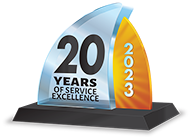Medical Marijuana Laws For Safety-Sensitive Employees
If you’re a safety-sensitive employee, then you know the importance of keeping current with the DOT’s drug testing regulations. With the advent of medical marijuana laws, what do you need to know to keep yourself safe and avoid any possible legal issues?
What is a Safety-Sensitive Employee?
The general definition of a safety-sensitive employee is someone whose position involves any task that may heighten the danger of the job and increase the risk of injury or possibly death. It requires the full, unimpeded, and unimpaired attention of the employee to ensure the safe execution of the employees’ duties. When an employee is performing safety-sensitive duties the lives of the public and themselves are at stake.
Because of this, the Omnibus Transportation Employee Testing Act of 1991 was passed which “requires drug and alcohol testing of all safety-sensitive transportation employees in aviation, trucking, railroads, mass transit, pipelines, and other transportation industries.” If you fail or refuse to take a test your employer will immediately relieve you of your safety-sensitive duties. You will only be able to return to these duties after completing a SAP program.
State Marijuana Laws
This is where things get complicated. Laws regarding marijuana usage vary from state to state.
Some states allow medical and recreational use, some have full and comprehensive medical marijuana programs, some allow only CBD and low THC use, and some don’t allow it at all.
Do these rules apply to DOT-mandated, safety-sensitive employees? No, these employees, “must regularly pass drug tests, regardless of state and local cannabis laws.” The current stance of the U.S. Department of Transportation adheres to their long-standing prohibition on any marijuana use. This restriction applies to both medical and recreational marijuana use.
Failed Drug and/or Alcohol Test? SRS Connects Safety-Sensitive Employees to SAPs Nationwide
If you’ve recently failed a drug and/or alcohol test, get in touch with SAP Referral Services (SRS). SRS has access to over 3,000 SAPs nationwide and can schedule you an appointment typically within 72-business hours.


